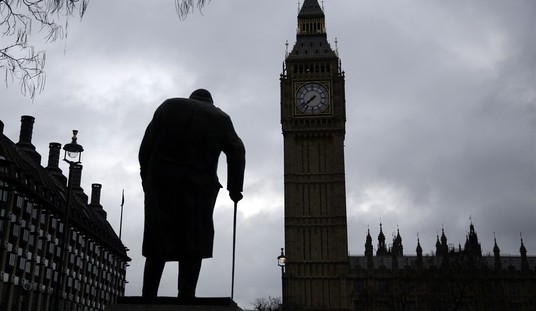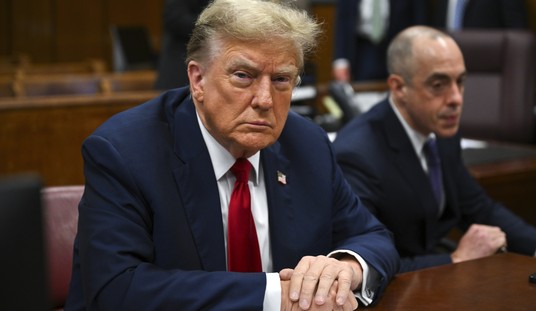As the Red Queen once put it, “All have won and all must have prizes.” As I listen to the debate over What To Do About Syria, it often seems that they’re all right. They all make sense, from the all-out bombers to the total isolationists. Those who say we’ve got no dog in the Syrian fight sound right, as do those who say doing nothing would be a disaster for the United States, along with those who say intervention would uphold the standards of civilization, and those who say American intervention risks unleashing even greater barbarism on the poor Syrians, and beyond.
Here are the sensible arguments I hear:
The use of chemical weapons should certainly be punished. Otherwise, the long-established taboo against the awful things will be proven worthless, and Assad and others will keep using them. Ergo, it’s right to punish Assad.
On the other hand, punishment might not be good enough. The Syrian ruler presumably used the chemical weapons because he was afraid of being defeated. He’d heard about the “red line,” and he did it anyway. A limited strike that does not threaten Assad’s hold on power is unlikely to convince him to change course. Ergo, he has to be punished in a big way, so that he learns his lesson.
On the other hand again, a big assault might threaten Assad’s regime. Suppose he falls. Will things get better? Plenty of smart people say that things might very well get worse, because Syria might thereby be brought under the control of radical anti-Western fanatics, including elements of al-Qaeda.
Furthermore, both the Russians and the Iranians, both of whom have a lot invested in Assad’s survival, say they will respond to an attack. What exactly does that mean? It’s not altogether clear, but what if an American bomber were shot down by Russian or Iranian forces? The consequences might be horrific (big war — world war, even?). Ergo it’s best not to go down THAT road.
Furthermore again, what’s our national interest in the outcome of the war? We don’t like Assad, but we don’t like a lot of those fighting him, either. Ergo, it’s best to stay out, then try to sort things out afterwards.
On yet another hand, if we do nothing, it seriously undermines American credibility, and therefore American security. No future “red line” is likely to deter anyone, anywhere. Retreat now would encourage Iran, Russia, Hezbollah and the Revolutionary Guards to conclude that we won’t do anything in future confrontations. Specifically, our “red line” on Iranian nukes would be erased. Ergo we must act, not only because it’s the right thing to do, but also because it’s strategically necessary.
It all makes sense, but it does not get us to a proper policy. Maybe, as many experts have been saying for some time, there really is no good outcome possible in Syria?
That, too, makes sense to me, and it suggests that we may be trying to solve the wrong problem. It’s better to ask the strategic question: “What is the best way to advance American interests in the region?”
That question forces us to look at a broader war. The slaughter in Iraq may be greater, and there’s plenty of fighting in Afghanistan. Moreover, there’s a common leitmotif: As in Syria, Iran is a major actor, sometimes sending its own military (the Revolutionary Guards’ Quds Force) or its foreign legion (Hezbollah), sometimes arming, training, funding and guiding terror groups, including al-Qaeda and the Taliban. We recently learned that Iranian General Suleimani, the Quds Force commander, had ordered killers in Iraq to prepare to attack in the event of an American strike against Assad.
The American government knows that Iran holds the key to progress in Syria. Indeed, Assad would probably have fallen long since without Iranian support. UN Ambassador Samantha Power said publicly that we sent warnings about chemical weapons to Assad via the Iranians, while Chief of Staff Denis McDonough said that bombing Syria would “send a message to Iran.”
Although Power said we were out of non-military options in Syria, there is at least one that might not only produce a better outcome in Syria, but greatly improve our interests in the entire region:
Support the opposition in Iran.
Most Iranians want an end to the theocratic regime, and have taken to the streets against it. Unlike so many in the Syrian opposition, the Iranians are pro-Western, experienced in self-government, and eager to separate mosque from state. They don’t need weapons or training; they need political support, probably some money, and good communications gear. If they win, we get a potential ally, Assad joins the mullahs on history’s rubbish heap, and terrorists all over the world are gravely weakened.
Ask a better question, get a better answer. And a prize from the Red Queen.








Join the conversation as a VIP Member